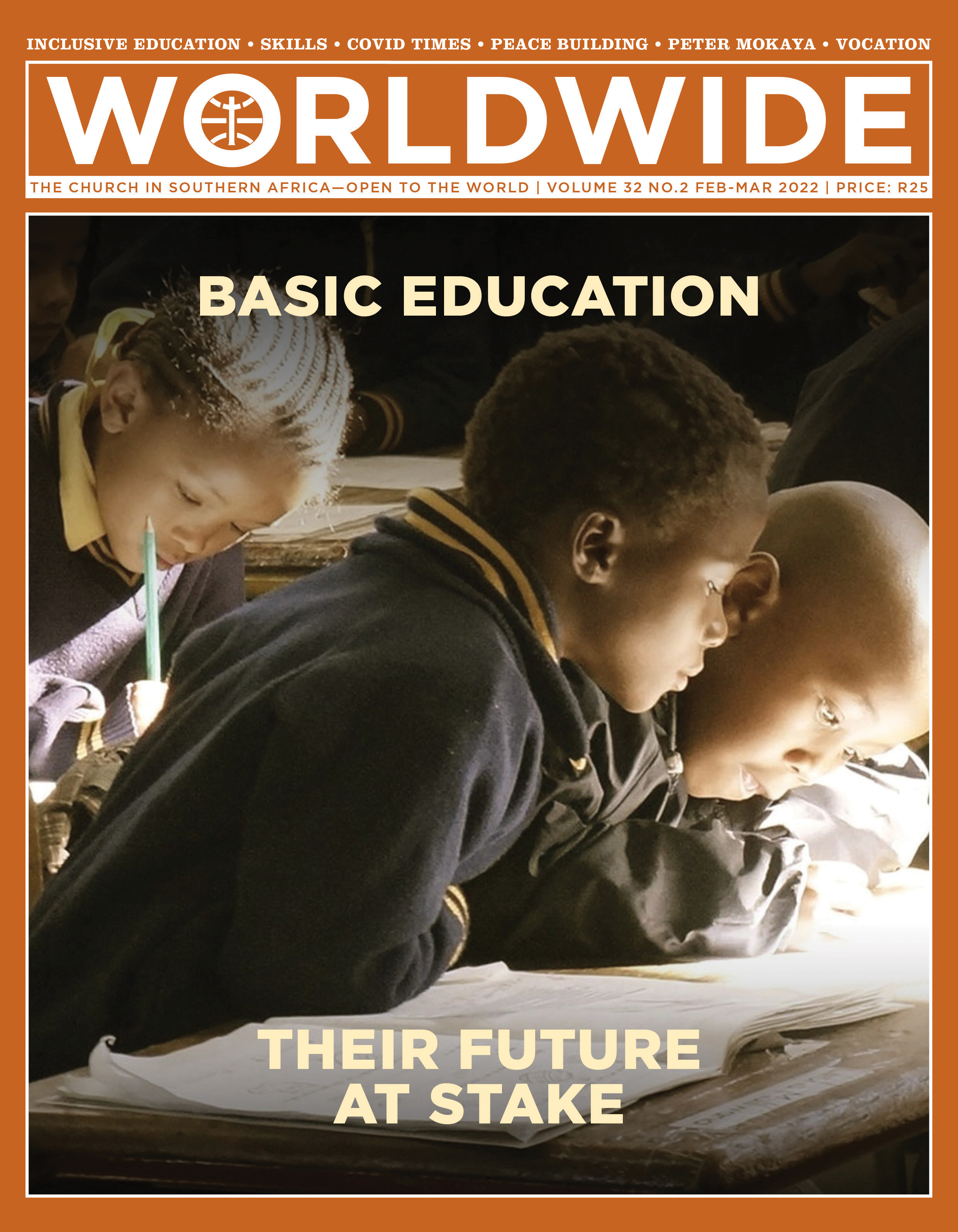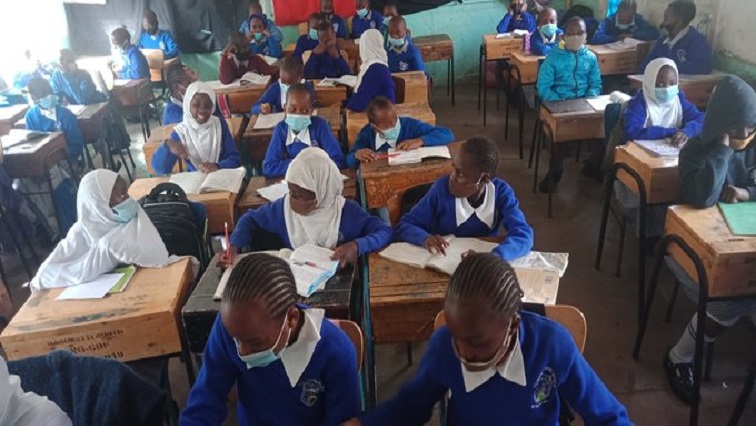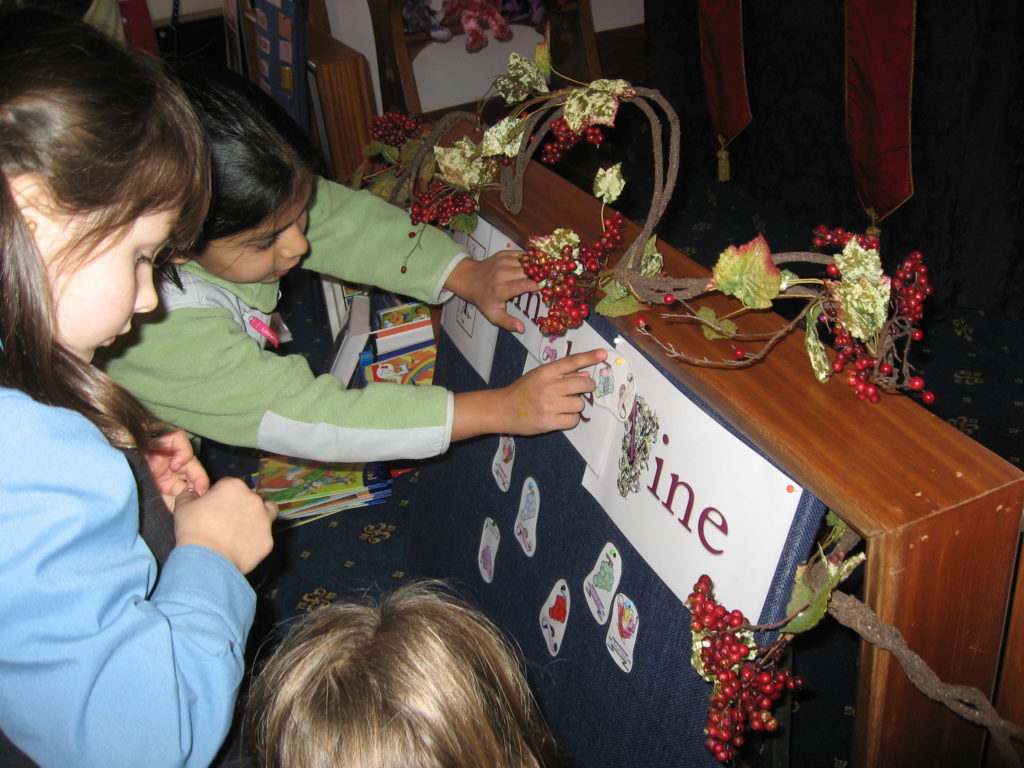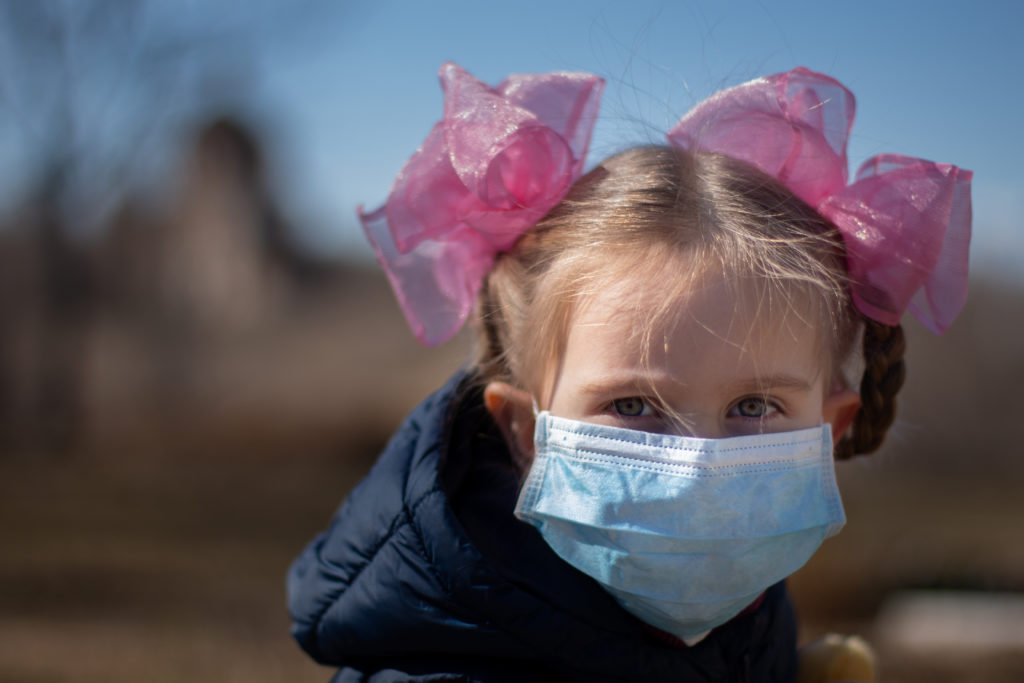
Basic Education Their Future At Stake
The front cover picture was certainly not taken during Covid times. We do not know its exact location, but it could be from any particular school in rural South Africa. What indeed the image of these children reflects is their eagerness for learning and doing it together. Their minds are surely full of dreams; their desires for a bright future cannot be frustrated. The task of offering them an inclusive and integral quality education can look gigantic, but each one’s contribution can make the miracle happen.
RADAR

Covid and Education
The Vatican’s Pontifical Academy for Life (PAV) released a new document on the dire consequences that Covid-19 has had on education, and calls for schools worldwide to reopen
BY Francesca Merlo | Vatican News
THE PAV has presented a document entitled: The pandemic and the challenge of education, prepared in collaboration with the Dicastery for Integral Human Development and the Covid-19 Vatican Commission.
A Parallel Pandemic
The impact of Covid-19 on the lives of children and adolescents—the so-called ‘parallel pandemic’—requires special attention. The psycho-social strain caused by the crisis, has resulted in distress and illnesses with different consequences, according to age and social backgrounds. In its introduction, the document aims at treasuring the experience of recent months and recognizes the “positive resources” that may have emerged during the pandemic, identifying some particularly critical issues “in order to face the future with the hope that the younger generations deserve”.
Children’s and Adolescents’ Resources
The text highlights that children and young people have shown a mature capacity to be sensitised to and involved in the understanding of the pandemic and its effects. “Among the youngest, sensitivity to questions and answers concerning pain, illness and treatment increases” and “this sensitivity represents a first and an important step in the development of a moral conscience”.

Resilience
Another positive feature that has emerged during these tragic months is the younger generations’ resilience. Indeed, PAV remarks that “young people know how to resist” in the face of negative events.
The importance of the family and the community’s support and guidance is emphasized in the text: even though children and young people are resilient, they should not be left alone in the face of traumatic events.
According to the document, elaborating on what happened provides an opportunity to develop trust in science: “The younger generations, raised in a highly technological and scientifically explainable world, can be helped to recognize that science comprises successes and failures that brings us closer to the truth. In a time when ideological denial of the value of scientific research emerges, the pandemic presents a significant opportunity to reaffirm the value, nobility and intellectual abilities of the human being”.
Even though children and young people are resilient, they should not be left alone in the face of traumatic events
Four Urgent Challenges
Four areas can be mentioned to which society needs to give particular attention and to take responsibility for the younger generations. They are the following:
Reopening Schools
The first area of concern, according to the PAV document, is school closure. Although the decision to close schools was justified by the scientific community to prevent the spread of the virus, this measure should be considered, in the future, “only as the last resort”.
Containment measures that have forced children to switch to remote learning have impoverished their intellectual development and deprived them of the richness and importance of relationships, even more so in the more disadvantaged and poorer social strata.
In this regard, the PAV calls attention to the following critical aspects: the first refers to countries in the southern hemisphere, where school closures have increased the rate of drop-outs: “At least 10 million children in the world will not return to school. Many of them will become victims of social conditions that force them into child labour and exploitation”.
Secondly, “closings of schools have limited the access to education, accentuating the inequalities, due to the ‘digital divide’”. Thirdly, considering nutrition, poorer children have been deprived of school lunches, while, in wealthier countries, school closures have encouraged unhealthy diets and lifestyles with reduced physical activity, resulting in frequent weight gain and impacting on mental health.
Finally, school closures have increased addiction to internet, video games or television (binge watching).
In the face of this dramatic situation, reopening schools is, therefore, a priority. “Mandatory school closings have made us realize how important it is to go to school. Young people now believe that reopening schools is a goal to be achieved. They sense their educational and social value of it”.
Safeguarding Family Relationships
The document mentions that even though the pandemic has offered parents the opportunity to share more time with their children and rediscover their ‘vocation’ as educators, there have also been a negative impact of long lockdowns on families, including domestic violence, behavioural disorders and increased parental stress. Hence, the need for adequate social, cultural and economic support for families.

Education to Universal Fraternity
The third challenge is about education towards universal fraternity. Covid-19 has offered a valuable opportunity for educators to open children’s minds and horizons, to teach them “not to escape the prospects of globalisation, the achievements of science, the ecological challenges, the economic and social perspectives, to be aware of existing inequalities and the role of social media and technology”.
“With the pandemic, the whole world has entered into every home. It is then up to the educators to translate all this and value it, so that the new generations might open their eyes and become more aware of the world in which they live and of their responsibility as citizens and believers”.
Transmitting Faith In The God of Life
The fourth challenge is about the importance of transmitting the Christian faith. The pandemic has disrupted Church educational activities, and there is an urgent need to “re-think” the pastoral care of the younger generations.
The pandemic itself needs to be considered as an opportunity to deepen and focus on themes of great importance for faith education
“The pandemic itself needs to be considered as an opportunity to deepen and focus on themes of great importance for faith education”, which were perhaps neglected before the pandemic broke out. It stresses the central role played by the family.
Finally, the Pontifical Academy for Life insists on the urgent need to remove “the serious obstacles that prevent a “healthy and positive” entrance of children and adolescents into society, and to create the necessary conditions for this to happen, the first of them is allowing children to go back to school.
| Dates To Remember |
|
February 1 – Blessed Benedict Daswa 2 – World Day of Prayer for Consecrated Life 4 – International Day of Human Fraternity 6 – International Day of Zero Tolerance of Female Genital Mutilation 8 – International Day of Prayer and Awareness against Human Trafficking 11 – International Day of Women and Girls in Science 11 – World Day of the Sick 13 – World Radio Day 20 – World Day of Social Justice 21 – International Mother Language Day March 1 – Zero Discrimination Day 2 – Ash Wednesday 3 – World Wildlife Day 8 – International Women’s Day 15 – St Daniel Comboni’s Birthday 20 – International Day of Happiness 21 – International Day for the Elimination of Racial Discrimination 21 – SA Human Rights Day 22 – World Water Day 24 – World Tuberculosis Day 24 – International Day for the Right to the Truth concerning Gross Human Rights Violations and for the Dignity of Victims 25 – International Day of Remembrance of the Victims of Slavery and the Transatlantic Slave Trade |
